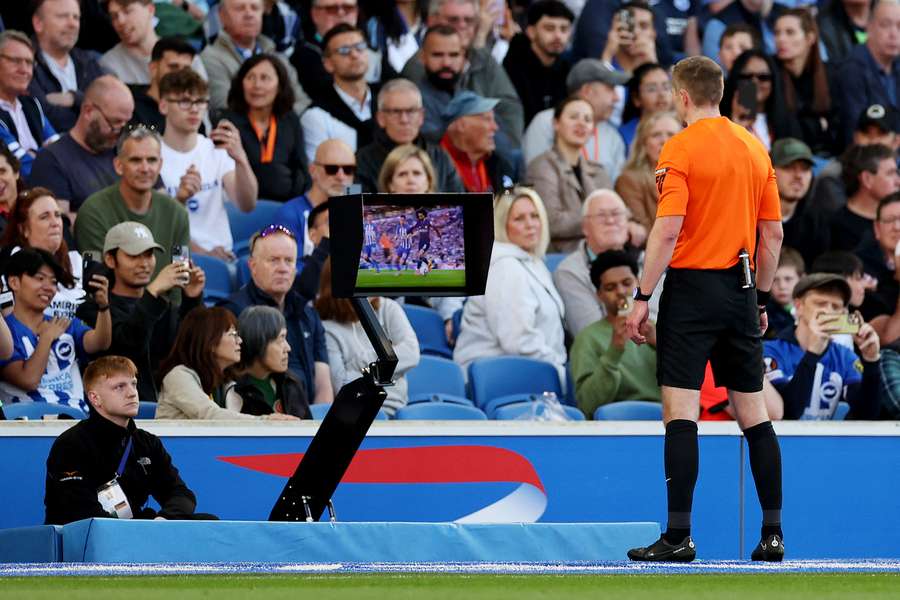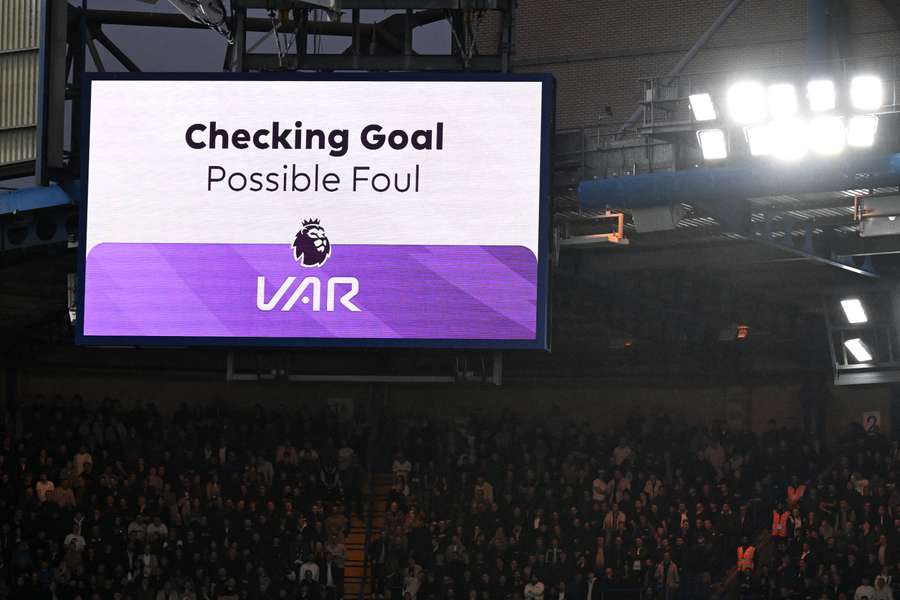All but one Premier League club vote against scrapping VAR

Wolves had tabled the motion in May to scrap the Video Assistant Referee system in its current state after finding themselves on the receiving end of a string of poor decisions during the latest Premier League season.
For VAR to be scrapped, 14 of the 20 Premier League clubs needed to vote in favour of doing so.
Indeed, near enough all Premier League sides had found themselves bewildered by the apparent misuse of the technology, with several glaring errors making headlines.
In a statement, the league said: "Premier League clubs today voted in favour of continuing to operate VAR in the Premier League.
"While VAR produces more accurate decision making, it was agreed that improvements should be made for the benefit of the game and supporters.
"As part of thorough discussions at the Annual General Meeting, it was agreed that PGMOL, the Premier League and clubs all have important roles to play in improving the system and its reputation.
"As part of ongoing work to improve VAR, six key areas were focused on as part of discussions with clubs."
The six areas for improvement were stated to be:
- Maintaining a high threshold for VAR intervention
- Reducing delays to the game, primarily through the introduction of semi-automated offside technology (SAOT)
- Improving fan experience through a reduction in the delays, in-stadium announcements from referees after a post-VAR change of decision (where possible, an enhanced offering of big screen replays to include all VAR interventions)
- Working with PGMOL on the implementation of more robust VAR training to improve consistency
- Increasing transparency and communication around VAR
- The delivery of a fan and stakeholder VAR communication campaign, which will seek to further clarify VAR's role

Following Thursday's vote, Wolves expressed frustration at the outcome but welcomed the Premier League's desire to improve VAR.
"While we are disappointed with the outcome of the vote on the future of VAR at today's annual general meeting, we acknowledge and accept the decision made by our fellow clubs and we are reassured that the Premier League is taking the concerns of clubs and supporters seriously," a Wolves statement said.
"We welcome the commitment to improve VAR, particularly in areas that address delays, consistency, and fan experience.
"While we still believe that Premier League football would be superior without VAR, we think that these improvements are crucial for the integrity of the game and for enhancing the overall matchday experience for our supporters."
'We cannot carry on like this'
Forced to sit through lengthy VAR delays, often without an explanation for why the decision is being checked, supporters have been outspoken in their criticism of the system.
Malcolm Clarke, the chairman of the Football Supporters' Association, said: "Support for VAR has collapsed since its introduction into English football.
"It's clear that in its current form it has made the match a less enjoyable experience. So much so that more than two-thirds of supporters now say they are against it.
"There's a growing feeling from fans that the increase in decision-making accuracy is not a price worth paying for the huge impact VAR has had on the match-going experience.
"Enormous changes to the current system are required to improve things, particularly for supporters in stadiums. We cannot carry on like this."
Arguably the highest profile example of VAR's failure was Luis Diaz's "ghost goal" that was chalked off against Tottenham in October - a goal which was incorrectly ruled out for offside amid a breakdown in communication between officials and prompted the club to demand a "review with full transparency" from the Premier League.
A string of other incidents also occurred throughout the campaign, with Wolves boss Gary O'Neil berating the system in November after three incorrect VAR decisions were made against his side during a game with Fulham: "I've always been for VAR, but I think it's causing a big problem at the moment.
"I'm managing a big football club here - the difference you're making to my reputation, the club's progression up the league, people's livelihoods is huge.
"It can't be with all the technology, in the best league in the world, it can't be OK. We should discuss the game really but unfortunately we have to discuss this."
However, it appears clubs are more interested in seeing drastic improvements and alterations to the current system rather than scrapping it altogether.
The league says that VAR has improved correct decisions from 82 per cent, prior to its introduction, to 96 per cent this past season.

